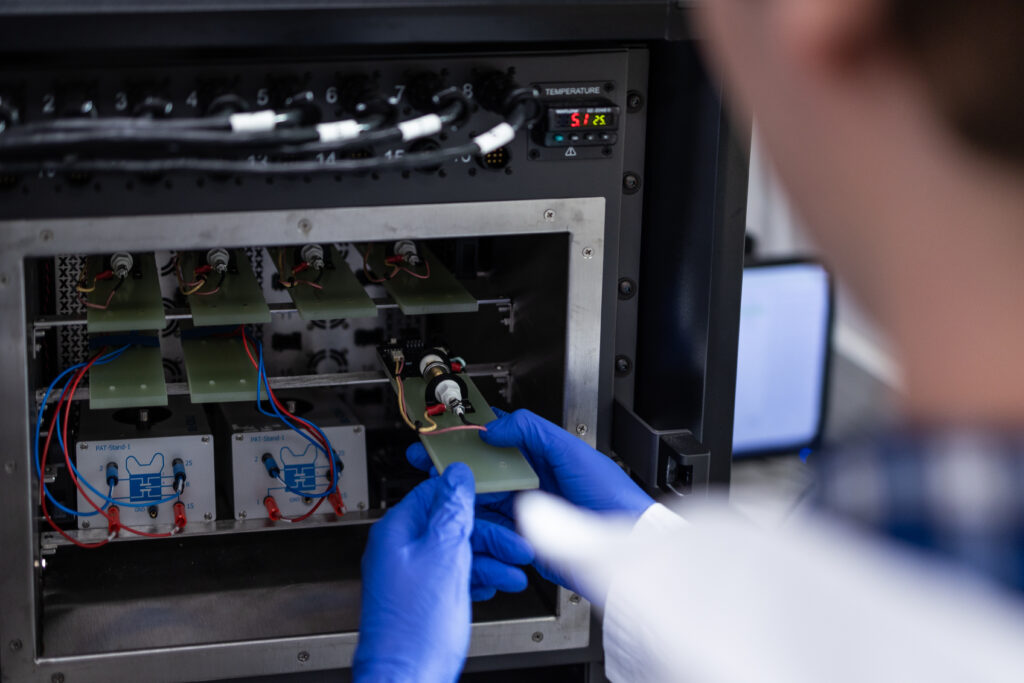NanoEnviCZ offers services for material and environmental research
The use of often unique devices and instruments for environmental and material research is offered by the Large Research Infrastructure (VVI) NanoEnviCz. In addition to the main coordinator, the J. Heyrovský Institute of Physical Chemistry, Czech Academy of Sciences, five other domestic research institutes or universities are involved, including CATRIN of Palacký University. They offer their services free of charge not only to domestic and foreign scientists but also to students, companies and other interested parties who deal with issues such as water, soil and air protection, reducing the occurrence of pollutants in nature or solving long-term ecological burdens.
“Thanks to the funding provided by the Ministry of Education, we are able to buy new devices, take care of the existing ones and offer them free of charge for use. The aim is to provide service and establish cooperation not only between the partner organizations but also with other academic institutes, public institutions as well as with industrial partners from the Czech Republic and abroad,” said the Principal Investigator, Martin Kalbáč, J. Heyrovský Institute of Physical Chemistry of CAS. Those interested can apply on www.nanoenvicz.cz, where they can find the necessary information about service and experimental equipment.
Jan Evangelista Purkyně University in Ústí nad Labem, the Technical University of Liberec, the Institute of Experimental Medicine CAS and the Institute of Inorganic Chemistry CAS also participate in the activities of the VVI.
“We have created a platform that completely covers all aspects of advanced synthesis of nanomaterials, analysis of their structure, monitoring harmful effects of nanomaterials and targeted influence of their functional properties. We are also able to help in solving current strategic challenges, e.g., preparation of materials for energy storage, photovoltaics, biosenzing, monitoring pollutants in water or soil or for toxicity study. We are therefore trying to cover environmental and material research. In the field of medicine, NanoEnviCz contributes significantly to the development of a completely new field of “nanoenzymes”, which due to their unique properties are used in the treatment of Parkinson’s and Alzheimer’s disease,” said Petr Jakubec from CATRIN, leader of the Olomouc team, according to whom materials developed with the help of VVI allow the development of more environmentally friendly and efficient industrial technologies.

The VVI Nanomaterials and Nanotechnologies for Environmental Protection and a Sustainable Future (NanoEnviCz) was included in the Roadmap of Large Infrastructures for Research, Experimental Development and Innovation of the Czech Republic for the first time in 2016. The next phase of the activity was launched thanks to support from the MEYS, and for the period from spring 2023 to 2026 it received financial support of 82 million Czech koruna. In this period it can draw on its previous rich experience. For example, between 2020 and 2022, VVI NanoEnviCz experts provided services to 228 external users, of which 68 were from foreign scientific institutions and universities, 34 from the industrial and private sector and 126 from academic, public and university institutions in the Czech Republic. Other results of the last three years also include 210 publications, which were created with the VVI’s contribution. Fundamental results of cooperation with industrial partners were patented and filed in the form of two prototypes describing functional zeolites for clean industry.
VVI NanoEnviCz also offers training for employees from industry who focus on advanced methods in the field of nanomaterials and nanotechnologies and the safety of their use. Members of NanoEnviCz also devote themselves to supervising student scientific works; under their supervision, 39 theses of various educational levels (bachelor, master, doctoral) were written in the period 2020–2022 and 253 student projects were implemented in the same period.

